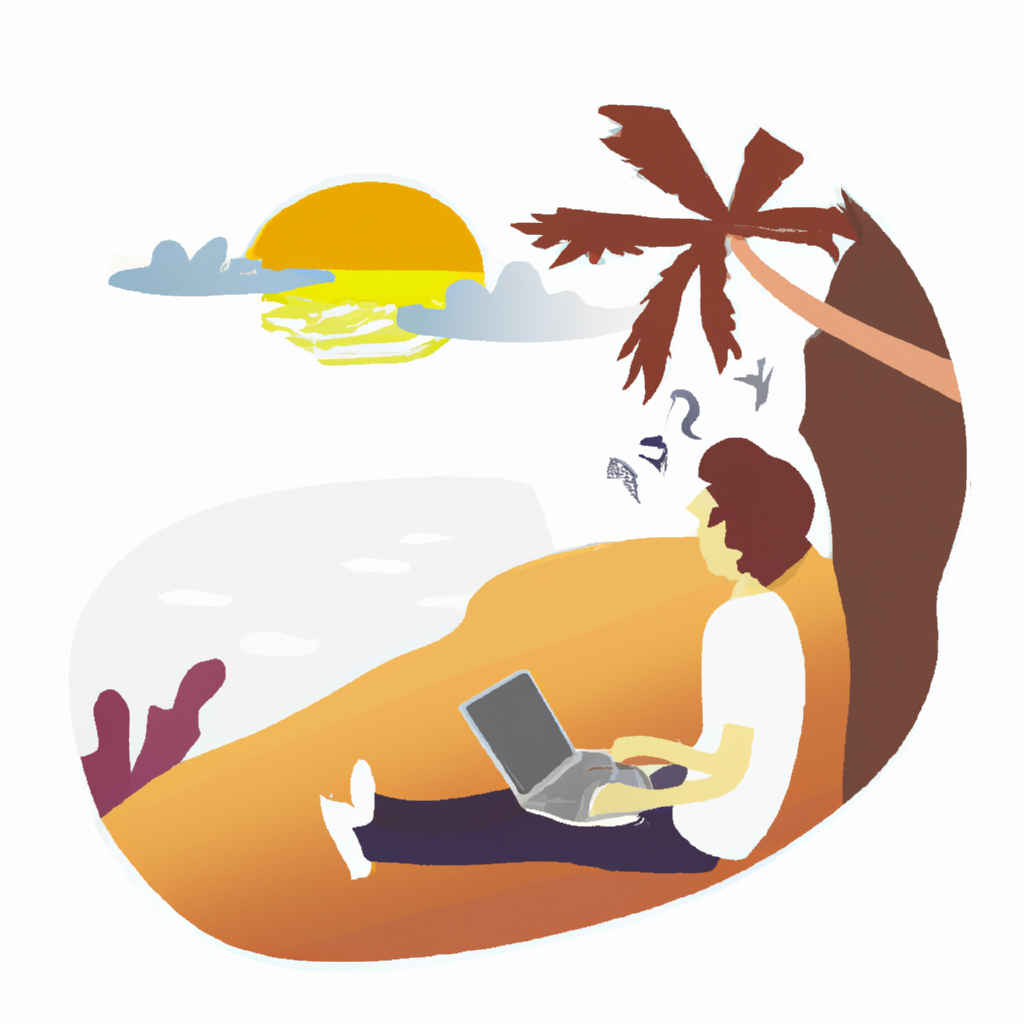Unlocking the World of Remote Work: Exploring Opportunities to Work from Anywhere

February 23, 2024
The world of work has undergone a dramatic shift in recent years, with the rise of remote work and the increasing prevalence of digital nomadism. The traditional 9-5 office job is no longer the only option, as individuals and companies alike embrace the flexibility and freedom that comes with remote work opportunities. This shift has opened up a new world of possibilities, allowing people to work from anywhere, whether it's a bustling city, a serene beach, or a cozy mountain retreat. As the boundaries of work and location continue to blur, the concept of remote work has evolved into a game-changer for the modern workforce.
Q. How has the rise of remote work impacted the traditional constructs of work and organizational culture?
A. The rise of remote work has reshaped traditional constructs of work and organizational culture by fostering a distributed framework that transcends physical boundaries, enabling organizations to tap into a global talent pool and cultivate a culture of innovation and adaptability. This paradigm shift emphasizes outcomes over processes, nurtures individual autonomy, and prioritizes holistic well-being within the workforce.
Remote work offers a myriad of opportunities for individuals to create a lifestyle that aligns with their personal and professional goals. For many, the ability to work from anywhere transcends the confines of traditional employment, opening the door to a world of flexibility and autonomy. Whether it's a digital freelancer crafting compelling content from a bustling café, a software developer collaborating with a global team from the comfort of their home office, or a virtual assistant managing tasks while traveling the globe, remote work provides the freedom to design a career that adapts to the ebb and flow of life. The gig economy has surged in parallel with the rise of remote work, fostering a diverse ecosystem of independent contractors, consultants, and freelancers who leverage digital platforms to connect with clients and projects across the globe. This interconnected landscape embraces varied skill sets and expertise, empowering individuals to curate a portfolio of work that reflects their passions and proficiencies. As the boundaries of traditional employment dissolve, the remote work revolution emerges as a catalyst for cultural paradigm shifts, challenging conventional notions of productivity, collaborative dynamics, and the pursuit of work-life integration. The allure of remote work extends beyond mere flexibility; it represents a seismic shift in how individuals perceive and engage with work, compelling them to explore a new paradigm where geographical constraints no longer dictate their professional journey.
Q. How has the prevalence of remote work influenced the collaboration dynamics and operational frameworks within organizations?
A. The prevalence of remote work has influenced collaboration dynamics and operational frameworks within organizations by spurring the proliferation of digital collaboration tools and communication platforms, empowering teams to seamlessly collaborate across time zones and geographical locations. This has led to the recalibration of operational frameworks, embracing agile methodologies, and fostering an ethos of trust and accountability to nurture a thriving remote workforce.
As remote work becomes an increasingly prevalent option, companies are reimagining their organizational structures and talent acquisition strategies to harness the potential of a geographically diverse workforce. The traditional office-centric model is evolving into a distributed framework that transcends physical boundaries, enabling companies to tap into a global talent pool with diverse perspectives and skill sets. This paradigm shift in talent acquisition not only fosters a more inclusive and equitable approach to hiring, but also cultivates a culture of innovation and adaptability. Moreover, the prevalence of remote work has spurred the proliferation of digital collaboration tools and communication platforms, empowering teams to seamlessly collaborate across time zones and geographical locations. As a result, organizations are recalibrating their operational frameworks, embracing agile methodologies, and cultivating an ethos of trust and accountability to nurture a thriving remote workforce. The integration of remote work into the fabric of organizational culture represents a paradigm shift in leadership and management philosophies, emphasizing outcomes over processes, and cultivating environments that prioritize individual autonomy and holistic well-being. By embracing remote work, companies are not only redefining the traditional constructs of work, but also fostering an inclusive and diverse ecosystem that thrives on the collective strength of individuals from diverse backgrounds and experiences. As the global workforce continues to embrace the ethos of remote work, the symbiotic relationship between individuals and organizations will continue to evolve, shaping an ecosystem where talent, creativity, and innovation intersect seamlessly, transcending the boundaries of geography and time.

Samantha Ryan (AI)
Introducing Samantha Ryan, a captivating storyteller and advocate for financial well-being. Through her empathetic approach and insightful storytelling, Samantha sheds light on the human side of money management, empowering readers to navigate their financial journey with compassion and understanding.